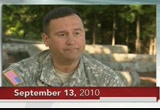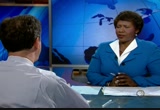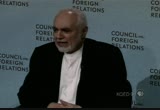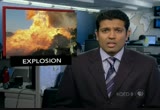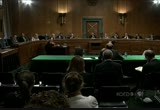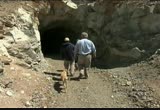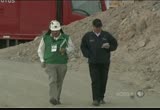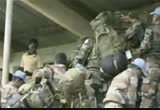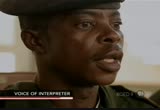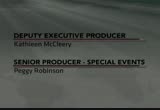tv PBS News Hour PBS September 13, 2010 6:00pm-7:00pm PDT
6:01 pm
unwhere 33 miners are trapped half a mile underground. >> ifill: an independent television news report on mass rape in congo. we hear from the victims, the rapists and the advocates trying to end it. >> brown: ray suarez visits a special camp in maine that helps veterans and their families heal the emotional wounds of war. >> it touches the person at a deeper level. it allows them to reunite with their families not just in the technical areas that they may need a little bit of help with but on the more personal side. >> ifill: that's all ahead on tonight's newshour. >> major funding for the pbs newshour has been provided by
6:02 pm
>> okay. sure. no problem. i don't know. i didn't know that. um-hum. um-hum. >> we're investing in math and science education to support the next generation of innovators. we're intel. sponsors of tomorrow. >> chevron. this is the power of human energy. >> bnsf railway. >> and by the bill and melinda gates foundation, dedicated to the idea that all people deserve the chance to live a healthy, productive life. and with the ongoing support
6:03 pm
of these institutions and foundations . and this program was made possible by the corporation for public broadcasting and by contributions to your pbs station from viewers like you. thank you. >> ifill: the political >> ifill: the political twists and turns over tax cuts was all the talk in washington today. but middle ground, in the end, proved elusive. the glimmer of a potential compromise on tax cuts for the middle class faded today almost as quickly as it flared to life. >> you don't want to punish these people. >> ifill: yesterday house republican leader john boehner who had staunchly opposed the president's plan to end bush-era tax cuts except for the middle class suggested he might change his mind if forced. >> if the only option i have is to vote for some of those tax reductions, i'll vote for them.
6:04 pm
but i've been making the point now for months that we need to extend all the current rates for all americans if we want to get our economy going again and we want to get jobs in america. >> ifill: senate republican leader mitch mcconnell said today senators in his party would oppose any effort to end any of the tax cuts. >> only in washington could someone propose a tax hike as an antidote to a recession. and this is no small tax hike. the tax hike the administration is proposing according to the i.r.s. would apply to half of all small business income in this country. >> ifill: mr. obama has argued ending the tax cuts for high- income earners would save the country $700 billion over ten years. today the president seizeded on boehner's concession and mcconnell's disagreement. he spoke to a small group of supporters in a fairfax county virginia backyard. >> we could get that done this week , but we're still in this
6:05 pm
wrestling match with john boehner and mitch mcconnell about the last two to three percent where, on average, we'd be giving them $100,000 for people making a million dollars or more. >> ifill: the debate over tax cuts within the democratic party as well is expected to grow more heated as lawmakers return to washington from a six-week break. let's start with john boehner on face the nation yesterday. what did he mean? >> well, that's really hard to say. i mean my sense is that he made a little bit of a mistake. he went off message. the republicans have been so adamant that they don't think the tax cuts should expire for anyone no matter how much they make. for john boehner to say maybe he'd go along if forced with a proposal that would let them elapse for people who make more than $250,000. that seemed off message. the republicans were very much backpedaling and retracting some of that. >> ifill: he came out with a statement this afternoon
6:06 pm
saying we need to stop all tax cuts and cut spending now. do we think his phone was ringing off the hook. we heard mitch mcconnell and republicans in the house. >> i think so. his office very shortly after those comments he made yesterday was sending out things that were sort of clarifications and were trying to explain that, no, he is still in favor of continuing the tax cuts for everyone. i think basically he just said something that perhaps he didn't intend to say. >> ifill: the white house seized on it very quickly. how did that roll up? how did that happen and why? >> you know, for them this was a golden opportunity because they had been arguing that the tax cuts should be allowed to expire for the wealthy. they're trying very much to create a populist contrast to the republicans. john boehner saying something that sounded like, well, maybe they're right or maybe if forced i could go along with what they're suggesting that was something we were very eager to pounce on to make their point. >> ifill: everyone is talking at cross purposes. what is the true state of the tax-cut debate? >> the fact is that the positions have hardened. both sides came out firing very hard.
6:07 pm
the reason is this is very important to the messages of both parties head ing into the election. the democrats' whole message is we're on your side, middle. we're in favor of you and not necessarily in favor of the wealthy. the republicans' whole message is there the democrats go again raising taxes and spending more money. neither side is going to want to give in near as i can tell before the election. >> ifill: how much of this is about the messenger and try to tar up the messenger a little bit in the case of the white house jumping down john boehner's throat. >> very much so. it's unfortunate but in politics it's very important to have somebody you're running against not just something you're running for. they've settled on john boehner as theirville and. the republicans are running against obama and pelosi so the democrats need someone. john boehner the leader of the republicans in the house is sort of the obvious choice. more and more president obama and other democrats have been mentioning him and attacking him when they're out there giving their messages. >> ifill: members of congress have been out of town for six weeks, a very long recess. the senate came back today. the house comes back tomorrow.
6:08 pm
how does their physically being here and getting on the floor and actually speeches and actually having to vote on things, how does that change where the course of this debate? >> well it changes the dynamics a lot. the democrats are pretty determined to bring something to the floor of the senate and the house because they want to give their members a chance to vote in such a way that they can go back home and say i voted against a middle-class tax increase. you know, when you're scattered throughout the country there's a lot of debate about what you've done and what your voting record is. this gives them a chance to actually vote on something. i think the odds of something passing before the election are relatively slim. it won't make a difference in that sense but it does give both parties a chance to make their point. >> ifill: the point for the white house is what? >> the point is we're on your side. we're in favor of tax cuts for the middle class but we're not going to let the wealthy take advantage of the situation. those republicans all they care about is rich people and the wealthy. that's the point that the white house is trying to get out there. >> ifill: when it comes right down to it and we've debated this endlessly on this program exactly about who is right
6:09 pm
about this but when the president says it's a $700 million bill to do it the way the republicans want and the republicans say you're raising the taxes on the people who are the engines of the economy, there any real way to sort that out onis it in both parties' interest to keep it uncertain. >> there are compromises that are being floated. there's a proposal out there to only raise taxes on people making a million or more so it would be the high-end earners. my sense that this is much more about both parties having a position than about reaching a compromise. it has to have a compromise by the end of the year because at that point the tax cuts will expire for everyone. nobody wants to see that happen. one way or another they have to reach an agreement. before the election not likely. >> ifill: perhaps sometime between the first tuesday and november and the christmas recess. >> we'll hope for that. >> ifill: naftali ben-david of the wall street journal, thanks so much. >> thank you. >> brown: still to come on the newshour, proposing new safety standards for banks worldwide focusing attention on
6:10 pm
dangerous mines in chile, comeate batting sexual violence in congo and reuniting veterans and their families at the camp in maine. first the other news of the day. >> sreenivasan: wall street kept its recent rally going today. stocks advanced on word of new global banking rules, growth in china and corporate mergers. the dow jones industrial average gained 81 points to close at 10,544. the nasdaq rose 43 points to close above 2285. a plane carrying 51 passengers and crew crashed in venezuela today. at least 14 people were killed. the airliner was coming from a caribbean island. it went down shortly before reaching the airport in puerto ordaz. there was no immediate word on what caused the crash. a nigerian man accused of trying to blow up a northwest airlines flight near detroit has fired his lawyers. umar farouk abdulmutallab announced his decision at a federal court hearing today. and he suggested he might plead guilty to some of the charges. last christmas, abdulmutallab allegedly tried to set off explosives in his underwear
6:11 pm
before being subdued. the muslim cleric who wants to build an islamic center and mosque near ground zero in new york city insisted today he is "exploring all options." imam feisal abdul rauf did not say directly if that includes finding another location. he did challenge the image that opponents have painted of the current site. >> first of all, it is absolutely disingenuous, as many have said, that that block is hallowed ground. you know, with a strip joint around the corner, with betting parlors, to claim that it is hallowed ground... it's hallowed ground in one sense, but it doesn't add. >> sreenivasan: rauf said organizers of the project were surprised by the furor over their plans. he said he wants the "best possible outcome for all." in kashmir, indian troops killed 14 protesters after reports of koran burnings in the united states. a police officer was killed as well. violent protests erupted across kashmir after iran's state-run press tv repeatedly aired images of a man destroying a koran in tennessee.
6:12 pm
a florida pastor had backed down from his threats to burn a koran. separately, two protesters in afghanistan were killed on sunday at anti-koran burning demonstrations. federal investigators in san bruno, california, asked for the public's help today in probing last week's natural gas pipeline explosion. they urged anyone who smelled gas beforehand to come forward. four people were killed and at least 60 others injured in thursday's explosion and fire. nearly 50 homes were destroyed, and dozens more were damaged. meanwhile, a 28-foot section of the pipeline was readied for shipment to a federal lab in washington today. hard-pressed firefighters in colorado have a new wildfire to worry about. it broke out sunday, near loveland. that is about 35 miles north of the blaze that destroyed nearly 170 homes near boulder last week. the loveland fire quickly destroyed two homes. helicopters and air tankers that were fighting the boulder fire were shifted to battle the new threat. a spokesman for the larimer county sheriff's office said today's weather conditions will
6:13 pm
help. >> we need to control it today. and assuming that our weather holds like it is and we can get air resources up, i think we have enough resources to do that, dependent on weather. what we got last night is actually improved for our side. >> sreenivasan: the fire outside boulder was expected to be fully contained today. the communist government in cuba will lay off at least 500,000 state employees by mid-2011. today's announcement said the cuts will begin immediately. at the same time, the government will allow more cubans to work in private-sector jobs. currently, the state employs 95% of the official work force. cuban president raul castro has said the system promotes inefficiency and has to change. those are some of the day's major stories. now, back to jeff. >> brown: and we turn to the international banking system: trouble in the past, and prevention in the future.
6:14 pm
it was a tense weekend two years ago when wall street investment giant lehman brothers teetered on the brink and then collapsed. helping to trigger a global financial crisis. no federal rescue came, a decision that fell to the nation's top finance officials at the time. treasury secretary henri paulson, chairman of the federal reserve ben bernanke, and timothy geithner then president of the federal reserve banning of new york now president obama's treasury secretary. in recent testimony before a commission investigating lehman's fall bernanke repeated what he had said in the past, that it had lacked legal authority for a bailout. >> the only way to save lehman was by breaking the law. i'm not sure i'm willing to accept those consequences for the federal reserve and for our system of laws. i don't think that would be appropriate. >> brown: but the fed chairman went further. >> it wasn't just a question of legality. it was a question of whether there was anything we could
6:15 pm
conceivably do to prevent the failure of the firm. therefore it was with great reluctance and sadness that i conceded that there was no other option. there was never any discussion which says here's how we can save lehman. should we do it or not? we never had a discussion like that. >> brown: lehman's collapse and the ensuing crisis led to a new push to make banks safer. in the u.s. a sweeping financial reform bill signed into law in july imposed stricter capital requirements on banks, yet largely left u.s. regulators to determine those levels. now new international standards may be on the way. this weekend in basil, switzerland, central bankers from 27 countries including ben bernanke agreed to new rules that included substantially raising amount of capital that banks must hold in reserve. banks in the u.s. currently must hold about 2% of their assets in capital or equity to absorb losses in the event of runs or financial panics.
6:16 pm
under the so-called basil-3 agreement the new international standard would be 7% of assets. but banks would have until 2019 to implement it. the head of the european central bank said the move would help protect against another meltdown. >> what we have decided is commensurate to permit when we have all the standards in place to make the banking sector at a global level much more resilient. and i would say we think we are commensurate to the shocks that we might have to cope with. >> brown: some banks have said the new rules may force them to reduce lending. u.s. officials favor going ahead with them. the agreement must still be ratified at the g-20 summit in november. for a closer look at the fallout two years later, >> brown: for a closer look at the fallout two years later, we're return to two financial journalistwho wrote books on the crisis. andrew ross sorkin of the "new
6:17 pm
york times," where he edits its "dealbook" blog. he's the author of the book "too big to fail." and john cassidy of the "new yorker." he's the author of "how markets fail." andrew ross sorkin, i'll start with you. two years later, what do we know now about events that led to lehman's collapse? what's most interesting to you? >> i think the most interesting part is actually the debate that you alluded to earlier in the piece around , could they have saved lehman brothers and what really took place? i think the two lessons learned with, a, they didn't actually have the tools but b was the political climate in which all this pressure was on them at the exact same time. i do that ben bernanke is telling the truth when he says he didn't have the tools but the most important llts of that is today, two years later, he does have the tools in that the financial regulatory bill that did pass has resolution authority which means that the next time a lehman brothers gets in trouble, the next time an aig gets in trouble we won't be held hostage by the banks instead we can wind them down in a meaningful way. that's something i think he wished he had at that time.
6:18 pm
>> brown: john cassidy, what strikes you? how much is still a mystery? how much do we know now. >> i think there's a mystery at the center of all this and that is why did the government let lehman brothers go down? if you notice carefully what bernanke said. he said we never actually discussed whether we could save lehman brothers. that seems to me to be a remarkable statement. earlier in the year, after all, they had saved bear stearns. why didn't they save lehman brothers the same way they saved bear sterns? the decision to let lehman go under after all turned out to be a catastrophic error and we're still suffering the consequences of it. >> brown: john, why does it matter, these two years later, what exactly happened? you heard what andrew said. what do you think? >> well, i think it matters just as a historical record. it was a terrible blunder in some ways. we still don't know all the facts behind that decision. bernanke has given his version of events. hank paulsen has given his version of events.
6:19 pm
andrew has given a version of events in his book. still the central mystery remains. why didn't anybody foresee that this would be a catastrophe and take steps to avoid it. we've had two years of global recession some of which could have been avoided if lehman brothers would have been rescued. >> one other point that i would make is, you know, lehman's failure was obviously a huge, huge problem and became the tipping point for the crisis. but in many ways to me the mistake is not as much letting lehman go but in saving bear stearns, oddly enough. it was that decision which set the course for the rest of these decisions. in fact, set up this issue of moral hazard that we often talk about, this idea of putting a safety net under people so that they actually think that they can take even more risk. >> brown: john cassidy, now bring us up to date. what's now happened in basil? you have these new rules. what jumps out to you as being important particularly vis-a-vis thinking about what happened two years ago? >> well, one of the things we
6:20 pm
learned two years ago is that banks are dangerous. they perform very useful functions in society. they redistribute money and resources. but if they go wrong, they can bring down the entire system with them. so we need to do everything we can to make banks safer. one of the things we can do is make them hold more money in reserve for when they get into trouble. a couple of years ago most banks were holding only two or three cents on the dollar for every asset they held. if the markets turned against them they could get into trouble very quickly. what this new banking regulation is about, the one set up in switzerland over the weekend, is forcing banks to hold more money against losses. i think that's a good idea. it's an obvious thing to do but, you know, it was necessary. >> brown: andrew, what would you add to that? >> i think the real question is, is it enough? you look at how the bank stocks performed today. they were all up. why? because people thought this wasn't nearly as today draconian as they thought it otherwise might be. one of the economists has
6:21 pm
talked about having capital requirements of 15%. 7% may not do it. then you think about the fact that you have until 2018 to do it, i worry. i hope that neither of us will have to right sequels to our books but i worry that actually we may run into another problem between now and then. >> brown: and just staying with you, andrew, this of course will play out for a couple of years as you say. it has to go to each country. do you expect the banks to fight it along the way? i mean what happens over the coming years? >> i actually don't expect too much of the banks... too many of the countries to fight it. the interesting element of all this is, of course, the u.s. banks are pretty well capitalized. the reason the bank stocks went up is most of them won't run into any trouble because of this. the ones who are hurting the most are most of the european banks which are truly undercapitalized. for them this will be a real challenge. it's one of the reasons by the way we don't have higher capital requirements today because frankly the europeans couldn't afford it. >> brown: john cassidy, what
6:22 pm
questions about all this remain for you in terms of how tough it is, how it will be implemented? >> well, in a way, you know, it reminds me of what happened during the second world war when the sort of french generals got together to discuss what went wrong, how did the germans get in? they decided of course that the maginot line they constructed didn't work. what we have here is a maginot line, the so-called basil-2 agreement which failed. they decided to build a bigger wall. we know from history that banks and financial innovators are very good at getting around regulations and new capital requirements so whatever it says on paper there's always a risk in future that some clever guys on wall street or the city of london will find a way to circumvent these regulations. so on top of just having regulations on paper you also need very vigilant and capable regulators to enforce them. >> brown: john, pick up on that. we've talked about this before,
6:23 pm
the various changes we've seen in this country to try to force or strengthen the hand of regulators two years later where do we stand on that in terms of their ability to oversee whatever changes happen and implement them? >> well, we've had the big financial regulation reform in the u.s. which has, as andrew says, has given the regulators a lot more tools than they had in the past. it's also given the federal reserve in particular a lot more power. in many ways the federal reserve failed to regulate the economy properly and regulate the financial markets but it's been rewarded. failure has been rewarded. now we're lying on the fed next time round to do a much better job. we hope they'll do a better job. experience teaches us to be cautious. we just have to wait and see. none of these things will be tested for years to come because banks don't get in trouble when the economy is doing pretty badly as it isality the moment. banks tend to get in trouble when the economy is actually doing well counterintuitively
6:24 pm
because that's when they lend too much money to people who don't really deserve the money. it won't be until we have another boom that we test all these new fire guards. >> brown: what are the prospects. what do you see in terms of the ability of regulators to act differently next time there's a potential lehman? >> john is exactly right. memories are short. i think over the next couple years the regulators will do their jobs and the bankers will reduce their risks and we'll all look at things and think that everything is great. it's five, ten years from now that you have to start worrying. i think the other component of this is the leses onreally around debt. you know, this whole conversation has been wall street. you talk about too big to fail in the context of financial institutions but ultimately where this is all going to the extent we'll have another crisis it's probably not going to happen on wall street. but it will be about countries, greece and italy and spain. it will be in states like california. at some point just like lehman brothers, just like banks who don't want to trade with
6:25 pm
lehman brothers because they worried they weren't going to pay the money back, that will happen on a much grander scale. that's where this whole conversation will ultimately head. >> brown: briefly, john, in the meantime, this investigation into lehman and dick fold the former leader, all that continues, right? we're still trying to get to the bottom of what happened. >> yes it does. the financial crisis inquiry commission which is a body set up by congress, a bipartisan body, is due to produce another report about all this in december. they've been interviewing all the people concerned, bernanke, dick fold, hank paulsen, so there will be another version of events in december. we'll just to wait to see what they come with. perhaps they can solve the mystery of why lehman was allowed to fail. >> brown: john cassidy and andrew ross sorkin, thanks. >> thank you. >> thank you. >> ifill: now to the continuing story of the >> ifill: now, to the continuing story of the month-long effort to rescue 33 miners trapped underground in chile. above ground, where their families wait, anger is mounting over safety conditions at the mine. newshour correspondent tom bearden reports from the scene.
6:26 pm
>> reporter: this person has been a miner all his life. he works out of a cluster of tumble-down buildings on the side of a mountain in the atacama desert about 35 miles from the site where the miners are trapped. this is arguably the driest place on earth. both nasa and hollywood have used the terrain to simulate the planet mars. as a younger man he worked for some of the big mining companies but he decided he wanted to be his own boss. so 30 years ago he started working this gold mine by himself. he sets the explosives and even hauls the ore out of the tunnel on his back, 150 pounds at a time. he says he's not surprised about what happened in the san jose mine. he says nobody really cares about the miners. not the owners, not the government. >> the only thing the owners are interested in is production, production. keep coming with more
6:27 pm
minerals. the human part doesn't matter. if it was just three or four miners stuck below, nobody would care. because it's 33 they can't hide that. there's too much pressure from the families. that's why the state is involved. they're putting $5 million into this. they keep putting more money into this. now we're going to see who is going to respond. >> reporter: as in most countries mining in chile is difficult, dirty and sometimes dangerous. people here are beginning to ask whether it's more dangerous than it has to be. the san jose mine has a long history of fatalities and serious accidents. about 180 miners sufferd various injuries in 2006, and the government ordered it closed in 2007. but it reopened less than a year later despite union protests. after the recent cave-in, the government beefed up the mine safety bureau and hired more inspectors but many people we talked to thought the increased attention wouldn't last. >> i hope the government takes the necessary measures and comply s with the law as it is.
6:28 pm
but as time passes this will usually subside and they forget. >> reporter: this copper mine is like the san jose mine but it's run by a family cooperative. ten relatives do the work drilling holes to set dynamite charges that blast out chunks of copper-bearing ore. the rubble is then sorted and sold to the state copper agency. luis says he worked at the san jose mine himself several years ago. >> i worked there. it has always been dangerous. that's why i quit that mine. i worked there cleaning the ramps. one day i just stopped my machine to go to lunch and never went back. they explode a lot. as well the different levels of the mine are very thin. sometimes the amount of material on these roads is just too much. which is what happened now. this is a mine that has always worried about exploding, exploding and little attention to safety. sometimes after exploding they leave immense piles of rocks so much so that you cannot see
6:29 pm
the roof above. using 80, 90 sometimes 100 sticks of dynamite at a time. sometimes this hill just cannot give more. >> reporter: he used a long steel rod to show us how loose rock left after blasting can easily be dislodged. that's why it has to be removed so it doesn't fall without warning and cause injuries. he says some of the big mines don't do this kind of maintenance and don't follow the existing safety rules. but after the cave-in, the owners insisted the miners survived because the company had followed the rules. but the company never finished building a mandatory escape ladder. if they had the miners had a clear path to it and could have used it to escape. that out rages nellie, whose son is is trapped in the mine. >> this mine should be closed. this is an unsafe mine. it doesn't haved ladders to get out. this is a mine that shouldn't continue giving work to anybody. it's been overworked. it's a mine overexploited. you can't continue to send people who go below this hill
6:30 pm
because it's dangerous. it's very dangerous. you shouldn't send anybody down there. miner or anybody. if it's not safe. >> reporter: mining company officials did not respond to requests for an on-camera interview. jessica cortez is victor's wife. she's three months pregnant with their child. given what's happened to your husband and what is still happening, him trapped underground, why would you let him go back to a mine? >> i don't want him to return to the mines. this is something we still need to decide. it's something we have to talk about when he gets out. >> reporter: in a letter he wrote to his mother he said he also had a lot of thinking to do. >> we have a lot to talk about. i've been given another chance. i've been reborn at 33 years old. i'm 33 and there are 33 miners here. jesus christ had 33 years of life. what a coincidence. it could be a miracle. this gives me strength to keep going. >> reporter: the mining union says most of the men don't
6:31 pm
have any choice but to go back underground. there just aren't that many alternatives that pay enough to allow the miners to support their families. the governor of the atacama region is is often at the mine site to offer updates on the progress of the rescue. she promises there will be an investigation of how this accident happened. >> the truth is the performance of the company has been lacking. they've been less than rigorous with the safety conditions and the workers' conditions and their financial situation is also not so good. the government is going to decide through various mechanisms who is responsible. we are going to demand that they comply with all the labor and safety rules. we've already begun legal investigations. the government prosecutors' office is also investigating them. the mining ministry is investigating who is responsible. and if necessary the state will act and apply sanctions if it's shown that they are responsible. >> reporter: but sanctions may be hard to enforce. the mining company has filed papers to declare bankruptcy.
6:32 pm
the company also says it can't pay anything for the rescue efforts. not even the wages owed to its miners. >> brown: next, a grim story of rape as a weapon of war. for more than a decade, the democratic republic of congo has been a battleground of congolese and fighters from neighboring nations. and the fighting has brought a legacy of sexual violence-- at least 200,000 cases since 1996, according to the united nations-- that's gone on undeterred by the presence of u.n. peacekeepers. we begin our coverage with a report from lindsay hilsum of independent television news. a warning: it contains graphic material. >> reporter: the survivors of mass rape around the village last month see an ordeal so dreadful it's hard to listen on their stories. more than 280 women were gang raped by militiamen in the
6:33 pm
forest of eastern congo. >> they would beat us for a long time. after they raped us, they would walk out and we would do our best to escape into the bush. sometimes we would have to crawl on the ground while they would rape us until dawn. they would also sometimes follow us into the forest aware of where we were hiding at night. if we were found, they would then rape us again. that's how they managed to rape all the women of this village. >> reporter: nearby u.n. peacekeepers failed to protect the women. their bosses in new york say they'll do better next time. but what about the rapists? sexual violence is endemic. under the international law, congress lease soldiers are on their best behavior but all sides rape in this brutal conflict. now a few soldiers in a retraining program have been pushed into reflecting on their actions. >> when i saw a woman it was
6:34 pm
like seeing food because of spending so many days without sex. i asked women to have sex which sometimes they did against their will for fear of their lives. i could call that rape. >> we did all sorts of things to women just because we felt we were in a position of power. there weren't going to be any consequences. we took advantage of them knowing they couldn't defend themselves. we were using our power to abuse women physically and sexually. >> i agree that forcing women to do things against their will is wrong. however, the isolation of life and the war in the forest, the way we're living is partly to blame for our behavior towards women. then we had no mercy. >> the soldiers who participated in the rape would stand and cheer enjoying witnessing such an act. thisen churched more and more soldiers to rape women. sometimes it starts with one soldier raping a women and it ends up with a gang rape. that's why i say it's like evil spirits are making us treat women in this way. i now believe that this
6:35 pm
training will prevent these things from ever happening again. >> reporter: rape victims near the town learn hygiene and child care. and receive trauma therapy as will the victims of the most recent atrocities. there are many projects to help them earn a living by, for example, making roof tiles. but nothing will really change in the democratic republic of congo until there are more efforts to make men change their attitudes. so women like this one bringing up a child of rape, it's been a long nightmare. she's been raped four times in the last nine years of conflict. >> i believe the war is the cause of all this. i started school at six and got married at 17. for all those years i never heard of anybody who got raped or killed by a soldier. we only started getting rape cases in 1994 when rwandan forces and militia came over the border. i've always advisesed and encourage others who have been raped and tell them to be
6:36 pm
resilient. even though they went through the ordeal of rape they should still be happy to be life. >> reporter: she called her child hope. something she tells other people who have been raped that they should still somehow try to feel. for more on the situation in the democratic republic of congo, we're joined by margot wallstrom, the united nation's special representative on sexual violence in conflict. and zainab salbi, the founder and c.e.o. of women for women international, an organization that aids women in conflict zones. margot wallstrom, how extensive, how system atic is what we were seeing right now? >> i think this demonstrates that women have become today's it can be more dangerous to be a woman than a soldier. it is widespread, and it exists not only in the d.r.c., but in other wars and
6:37 pm
conflicts as well. so we should not call it cultural , not even sexual. but it's criminal. this is where we have to focus our efforts right now to end impunity, to send a strong message that this is not allowed. it's criminal. we'll go after the perpetrators. >> ifill: you talk about going after the perpetrators. there are so many reports that the united nations should have been there or had information that at least there was rebel activity in this area where this latest series of mass rapes happened. the the u.n. drop the ball? >> i think that it's important to, as we have done, we've looked at sort of the shortcomings of the peacekeepers in this case where information was not rightly interpreted or where they did not act as they should have. we will also correct that and follow up and do our homework. but that must not allow us
6:38 pm
to lose focus on the perpetrators because i think this is also very important. we need that spotlight as well to make sure that we deter and send a strong message to those who commit these crimes and also make sure that with the help of the government and the national army that we can actually make an effort to find them and put them to justice. >> ifill: this is not the first time we've had this conversation about rape as a weapon of war. how extensive is it? how addressable is it? >> very extensive unfortunately. it has happened historically. it is take... about a thousand women is getting raped every month in the last 12 months according to the state department. this is a horrible horrible atrocity. i think part of stopping it or
6:39 pm
addressing it is the political will. the truth of the matter the international community has not shown the violence. congo is the violence against the whole population and an indicator for the direction of that country. we know the u.n. and others know actually who are the perpetrators. these are public perpetrators not secret one. who know who are financing them. there are 40 men. it's a public record. there are cell phones and flight itinerary. their movement is a public record. there is no political will to do actions by the congo. refugees on top of it are living in this situation. we keep on focusing on the perpetrators as opposed to what can we do about it. political will. arresting them. protecting the victims and providing for the victims after what they endured. >> ifill: is thereto not a domestic responsibility? is there the government in the drc incapable of doing this? does this all have to fall on
6:40 pm
the international community. >> not at all. the d.r.c., the congo is a huge country first of all. very centralized. historically it has not been in strong relationship with the central government. there's a huge level of corruption. so that contributes to a lot of it. of course it's a lot of level of minds and resources and congo has many players. some neighboring countries and some others who are contribute to go that crisis. >> ifill: margot wallstrom respond to what zainab just said which is that this is a matter of political will around the world and that basically the international agencies look away. >> well, this was brought up just a couple of weeks ago in the security council. at least the international community, i think, at this time has reacted very, very strongly. i think we need to on parallel tracks and at the same time we need to mobilize the political will.
6:41 pm
that is absolutely correct. we need to make sure that we militarily go after and fine the perpetrators because this is the way to end impunity. it has to start with finding these guys and putting them to justice. and i think we also need to improve, of course, the way we do peace keeping. but again that will play always a limited role in such a vast country. we can never at the same time cover all the geographical areas and so on. but we can do better. this is what we have to make sure we get better training and so on. so i agree that this has been... it's an expression of the fact that women also lack a voice or respect in those countries. and it has to be seen together with the fact that there are economic interests in this country that also helps to fuel the conflict.
6:42 pm
that's why i welcome actually president kabila's initiative to ban mining activities in this part of the country. i think at least all of those things contribute to us being more effective in addressing the problem. >> ifill: we just saw the women in that piece, we saw the men actually talking in that piece. they're part of a program that you run in congo. what is the point in hearing from these men? what is that about? >> well, we believe that we must talk to the men to raise their awareness about the importance of stopping this violence. and i actually believe out of many interviews with hundreds of men that this change is possible. so we work with men in leadership positions. the mayor, the pastor, the military commander, the governor and others and the soldiers. i personally interviewed the military commander who said before i entered this training-- because we tell them if you want to be a good leader, you need to understand what the women in your population are asking for and
6:43 pm
demanding. this one military commander said before i entered this program, every time i entered another man's house and i had a gun and he didn't have a gun, i never questioned about raping his wife. i always raped his wife. until i realized that i could get h.i.v. and that i could die and half of my soldiers could die. the same military commander abolished rape and punished any soldier who is raping. he had moved from very cold hearted argument to a more moral one as he got closer. >> ifill: what ... but it's about his own self-interest. >> we have to look at multifaceted aapproaches. we have to talk because we really need to stop this rape. if it's as simple as correlating h.i.v. with rape, then we need to make that simple correlation . >> ifill: i want to ask you about something a former u.n. official who was in the congo said it's about the question of and apathy. he said if you realize you can't deal with the situation
6:44 pm
you may just decide to do nothing. is that assuming that right now that you're on top of this and you want moving forward to address this issue, up until now, this has been going on for years and years, has apathy been as much of a problem? >> i wouldn't say so because i think that the u.n. response has become more and more effective in that actually we have a much higher level of awareness. we have, for example, we presented an inventory of best peace keeping practices where we learn more about protecting civilians and that, of course, means women and often women. so even in the congo they have these patrols accompanying women to the market or to the water well. i think that has helped a lot. also to deepen the understanding of the women's need of protection. i think it has helped to prevent also rapes.
6:45 pm
that is also in other parts of the world where we have wars and conflicts. i think this is not true. i think we have put this higher up on the political agenda. but we still... let me just point out that this is an international... it's a crime. >> ifill: let me ask you about that. >> it's a violation of human rights. i think it has to be treated that way. i don't think we have time to wait for sort of a moral understanding. i think there has to be command responsibility. there has to be military and civil justice. this is very important and serves as a signal also to the soldiers because they have no obey orders. it has to be very clear that there is responsibility. thank god also the i.c.c.brings up these cases now. >> ifill: okay. >> in the international criminal tribunals there is also a case on rape. >> ifill: all right.
6:46 pm
margot wallstrom of the united nations, special representative on sexual violence and conflict and zainab salbi, thank you both very much. >> brown: finally tonight, a quiet place to step back from the traumas of terrorism and war. ray suarez has that story. >> suarez: in an out door cabin on a glistening lake in maine people gathered in camp as they did in many places over the weekend to remember september 11, nine years ago. >> this cross is given to us last year by one of the firefighters. this was carved from steel of the trade center that went down. >> suarez: several of the families at the remembrance had their lives transformed by that day. it set them on a long journey that would eventually bring them to a weekend in the maine woods. this has been a summer camp
6:47 pm
for boys since the 1920s. after the 2001 terror attacks, kiev reached out to the families of victims from the world trade center and the pentagon. and now he's helping reintegrate veterans with their families as they return from iraq and afghanistan, the wars that followed that terror attacks. >> there you are. >> suarez: the camp brings enlist men and women and their families here after the summer kids have gone home. giving them a chance to talk, play, relax. >> did you see that? >> suarez: he entertains for up to a week. this isn't a therapeutic camp. it's not heavily programmed with a tight schedule to keep. after breakfast, you might wander over to a pottery class. paddle out from the dock and bait a hook. or this weekend trade stories with veterans from earlier wars. get away from home and its demands. >> that's good too. >> suarez: dick kennedy, whose
6:48 pm
father founteded the camp his son now runs, said he got the idea for veterans camp watching a group of just- returned servicemen getting off the plane from iraq. >> they were scared to go home. they had been in a horrible environment, dangerous, hot , nasty environment. what their real fear was is going home and wondering how it was going to work... how they were going to work as part. family. how their family would work now that they were returning to it. that was my aha moment. i mean, gosh, these guys need the same stuff that our 9/11 people need. >> suarez: nancy kennedy, co-directors of veterans camp but no relation to dick, agrees. >> there's an awkwardness among some of the families. i think it really relates to the fact that they haven't spent a whole lot of time with each other. they almost have to learn the language of being in the family again.
6:49 pm
>> suarez: maine national guard helicopter pilot rick, his wife caroline and his step children hannah and josh headed to the indoor rock- climbing wall. they cheered and helped each other up the wall, struggled and laughed. >> good job. >> suarez: out of the helmets and harnesses and back on solid ground, the tailors looked back on rick's deployment to iraq. >> it was pretty scary having rick gone. >> his deployment was very rough. we had some very unexpected things happen. so we survived. >> suarez: but it was the return home that was toughest for rick. >> we always pulled out these injured people and stuff. you get that attitude that you kind of turn off the emotion. you know, it's like nothing matters. that's how you get through the day.
6:50 pm
that's how you are able to get back in that helicopter the next night and go get somebody. but then you get home and you still have it. you can't really have that attitude when you have a wife and kids. you just don't care about stuff. >> i said to him when he first came... not when he first came home but probably maybe i'd say maybe three or six months later, i'm like you are not the same person you were when you left. before you left, we never argued. we got along famously. that was very difficult. that was... there was a change. definitely has been a change. >> suarez: while rick was in iraq, caroline broke her neck in a fall from a ladder. she told rick not to come home after he got the news. she relied heavily on friends and neighbors during a long recuperation. they all agree it was tough but they will be much better
6:51 pm
prepared when it's time for rick to head to afghanistan on his next deployment. 50 years old, married, two kids, more and more of the burden of america's wars is being carried by soldiers like rick tailor. >> how about a nice hand for this girl right here. >> suarez: for some of the veterans' camp families the time away was nothing more serious than a fun weekend away from home but nancy kennedy says she often sees a big change in just a few days. >> there's definitely a difference in families. they're holding each other. they've gotten each other's rhythms kind of back again. they remember old jokes. it almost like gives them a little jump-start to this dynamic that had been there that had been interrupted. >> suarez: the plan is to expand the concept to camps across the country.
6:52 pm
this program has the encouragement of the department of defense and the support of chaplain andy gibson, the maine national guard. >> what this does is it touches the person at a deeper level. at a spiritual level, at a personal level. it allows them to reunite with their families not just in the technical areas that they may need a little bit of help with but on the more personal side. >> suarez: marine lance corporal philip reardon who spent the day fishing still has a ways to go. recuperating from injuries sustained in iraq he freely admits he's still a little uncomfortable being back in the u.s., so what is the hardest part about being back? >> really dealing with people. like just, you know, the way people... what people do really gets on my nerves. can't really stand being around all that many people
6:53 pm
for a long period of time. they kind of aggravate me. when i heal up and all that , trying to get back in . life was so much simpler really. >> suarez: the vets and their families pay nothing to be here. a nonprofit raises all the money. the cabins, the meals, the staff, the activities run about $1,000 per person per week. >> i think probably it's a good deal. i think probably we're saving somebody a whole lot more money and a whole lot of terrible wrenching experiences if we can get them back where their feet are on the ground and if their family is squared away. (bell ringing) >> suarez: the dinner bell calls vets' campers to a saturday night feast. a lobster bake. steamed under a blanket of sea
6:54 pm
weed, sweet corn, clams and young potatos. more than 24 hours into the program an easy familiarity has set in among people who were strangers a little while ago. clearly charmed by what generations of boys in aging black-and-white photos have known for a long time that are offered as welcome thanks or needed therapy camp can be a blast. >> ifill: the major developments of the day. senate republicans warned they would oppose extending tax cuts for the middle class unless cuts are extended as well. at least 14 people were killed when an airliner went down in eastern venezuela. now we go to hari sreenivasan in our news room for what's on the newshour online.
6:55 pm
>> sreenivasan: ray has narrated a slideshow of images from that camp in maine. tom has a blog post examining the problems that have long plagued the chilean mine where the 33 workers remain trapped. gwen talks with politics editor david chalian about the tax cut debate, and previews tomorrow's primary contests. all that and more is on our web site, newshour.pbs.org. >> ifill: and that's the newshour for tonight. on tuesday, we'll talk to former british prime minister tony blair about middle east peace and his new book. i'm gwen ifill. >> brown: and i'm jeffrey brown. we'll see you online, and again here tomorrow evening. thank you, and good night. major funding for the pbs newshour has been provided by:
6:56 pm
and with the ongoing support of these institutions and foundations. and... this program was made possible by the corporation for public broadcasting. and by contributions to your pbs station from viewers like you. thank you. captioning sponsored by macneil/lehrer productions captioned by media access group at wgbh access.wgbh.org >> so, ah, your seat good?
6:59 pm
got the mirrors all adjusted? you can see everything ok? just stay off the freeways, all right? i don't want you going out on those yet. and leave your phone in your purse, i don't want you texting. >> daddy... ok! ok, here you go. be careful. >> thanks dad. >> and call me--but not while you're driving.
159 Views
IN COLLECTIONS
KQED (PBS) Television Archive
Television Archive  Television Archive News Search Service
Television Archive News Search Service 
Uploaded by TV Archive on

 Live Music Archive
Live Music Archive Librivox Free Audio
Librivox Free Audio Metropolitan Museum
Metropolitan Museum Cleveland Museum of Art
Cleveland Museum of Art Internet Arcade
Internet Arcade Console Living Room
Console Living Room Books to Borrow
Books to Borrow Open Library
Open Library TV News
TV News Understanding 9/11
Understanding 9/11
